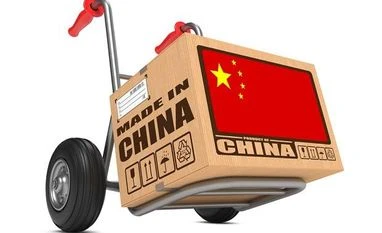China's exports fell more than expected in April while imports rose, official data showed Wednesday ahead of high-stakes talks aimed at resolving a trade war with the United States.
The world's two leading economies face a possible make-or-break moment when top negotiators meet in Washington this week following months of fraught talks.
US President Donald Trump has upped the ante with plans to more than double tariffs on USD 200 billion in Chinese goods on Friday, the last day of a two-day visit by President Xi Jinping's point man Vice Premier Liu He.
The trade war has battered shipments between the economic giants.
In April China's exports across the Pacific fell 13.2 percent from a year earlier, while imports from the US fell 25.7 percent, according to the data from China's customs administration.
The politically sensitive trade surplus with the US remained large, widening to USD 21 billion last month from USD 20.5 billion in March. Last year it hit a record USD 323.3 billion.
More From This Section
Global markets have taken a beating this week as investors grow increasingly concerned that the China-US trade deal, which last week appeared all but ready to sign, could fall through.
US negotiators accused Beijing of reneging on commitments made during months of talks focusing on clamping down on theft of US technology and reducing China's massive subsidies.
"If Trump's threat becomes reality, it will be a game changer for the global economy," said Steve Cochrane, chief APAC economist at Moody's Analytics, adding the worst-case scenario would result in a US recession and a rapid reduction of growth in China.
Tepid global demand for China's goods have heightened the risk for Beijing, which posted 6.4 percent economic growth in the first quarter, having decelerated every quarter last year.
China's exports to the world sank 2.7 percent on-year last month while imports rose 4.0 percent, producing a trade surplus of $13.8 billion.
Economists polled by Bloomberg had expected a 3.0 percent rise in exports with imports projected to fall 2.1 percent.
"Today's exports data support our view that there is real risk of double dip in growth, and Beijing cannot afford to stop easing yet," said Lu Ting, an economist at Nomura bank.
"With the rapid escalation of the trade conflict with the US, we believe Beijing will likely step up easing measures again," he wrote in a note.
Beijing has moved to jumpstart its cooling economy this year with massive tax cuts and fee reductions, and a targeted reduction in the amount of cash that small and medium-sized banks must hold in reserve announced on Monday.
But the central bank has yet to cut interest rates.
In March China's exports unexpectedly jumped 14.2 percent, and analysts caution it is difficult to compare trends at the start of the year owing to the Chinese New Year holiday, which fell in February.
Over the first four months of the year China's exports rose only 0.2 percent on-year while imports dropped 2.5 percent, both down from the final quarter of last year.
"Even if a last-minute deal is struck this week to avoid further tariffs, the downbeat prospects for global growth will probably mean that export growth remains subdued," said Julian Evans-Pritchard of Capital Economics.
Data last week showed China's factory activity softened in April, with the new export orders sub-index rising from March, but remaining in contraction territory.
)